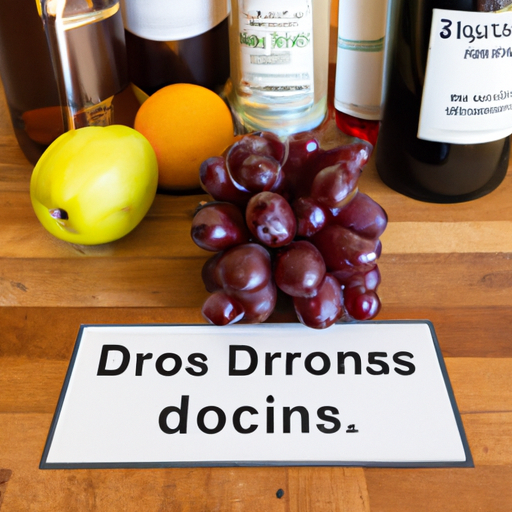As a dedicated caregiver, it’s only natural that you want to share everything with your furry friend. However, it is imperative to know that some human foods can be harmful, even lethal for your pooch. Whether you’re spoiling your dog with table scraps or simply curious about their dietary restrictions, this comprehensive guide will shed light on what you cannot feed dogs.
Table of Contents
- Foods to Avoid
- Toxic Effects of Harmful Foods
- Safe Alternatives
- FAQ
Key Takeaways
- Dogs have a different digestive system than humans, making some foods toxic for them.
- The effects of harmful foods can range from mild discomfort to severe health risks.
- Numerous safe alternatives can satisfy your dog’s palate without posing any threats.
- It’s essential to consult with a vet before introducing new foods to your dog’s diet.
Foods to Avoid
While dogs are known for their insatiable appetite, it’s crucial to ensure they are not consuming harmful foods.
- Chocolate: Chocolate is toxic to dogs due to a compound called theobromine, which they cannot metabolize effectively. (source)
- Grapes and Raisins: These seemingly harmless snacks can cause kidney failure in dogs.
- Onions and Garlic: These can cause anemia in dogs by damaging their red blood cells.
- Alcohol: Alcohol can cause a myriad of health issues in dogs, including difficulty breathing, tremors, and even death.
- Caffeine: Similar to chocolate, caffeine contains methylxanthines, which are toxic to dogs.
Toxic Effects of Harmful Foods
The effects of these harmful foods on dogs can be severe. Chocolate, for instance, can cause vomiting, diarrhea, and even seizures. Similarly, grapes and raisins can lead to sudden kidney failure, a life-threatening condition. Consuming onions and garlic can cause dogs to become weak and lethargic, while alcohol can lead to alcohol poisoning in severe cases.
Safe Alternatives
Fortunately, there are many safe alternatives that dogs can enjoy. Apples, carrots, and blueberries are all excellent choices that provide nutritional benefits. It’s also worth noting that treats specifically made for dogs, such as those found on One Top Dog, are always a safe bet. Before introducing any new food to your dog’s diet, it’s best to consult with a veterinary professional.
FAQ
Q: Can dogs eat cheese?
A: While cheese is not toxic to dogs, it is high in fat and lactose, which can cause digestive issues in some dogs.
Q: What about peanut butter?
A: Most peanut butter is safe for dogs, but avoid brands that contain xylitol, a sweetener that is toxic to dogs.
Q: Is it safe for dogs to eat eggs?
A: Yes, eggs are safe for dogs to eat and are a great source of protein. However, they should be fully cooked, as raw eggs can pose a risk of salmonella.
In conclusion, knowing what you cannot feed dogs is a vital part of being a responsible caregiver. By avoiding harmful foods and opting for safe alternatives, you can ensure your furry friend stays healthy and happy. For more insights on dog nutrition, check out this comprehensive guide on One Top Dog.



